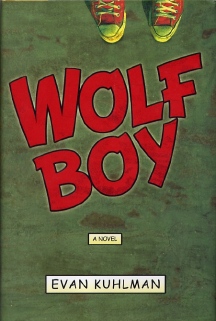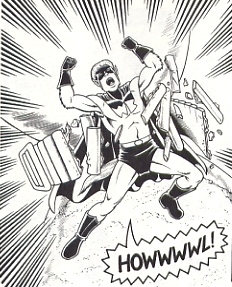The next book this time around was Wolf Boy by Evan Kuhlman. I am a firm believer in judging a book by its cover, and many, many times have used this old backwards adage to chose the next book I will read. But just look at this cover:

I was helpless to resist. I picked it off the shelf and carefully, gingerly even, opened the book to see that within the pages and pages of words rested scatterings of a graphic novel.

The book is sweet and touching and still somehow avoids that maudlin touch that plagues all novels about grieving. In the story, a young man is killed in a car crash, and the novel follows the immediate effects of his death on his family. One of these effects is the creation of Wolf Boy, the comic book character, by the grieving brother.
The most interesting and honest moments in the book occur as the reader watches the parents of the boy deal with his death. The mother completely loses any sense of herself, and the father tries to be open with his grief and just ends up making everyone uncomfortable. The novel explores the idea that everyone deals with grief their own way. This truth is something that makes funerals always uncomfortable and difficult -- besides the obvious fact that a loved one has just died. You are always expected to push yourself into someone else's idea of what it means to grieve. And that springform pan does not fit anyone perfectly.
The family doesn't reach any definitive change in the end, but the realism of that ending is just the kind of thing that draws me to this book. Sometimes I look for a lack of reality in a book, but every now and then it's nice to feel the mirror of the novel turn towards humanity.


